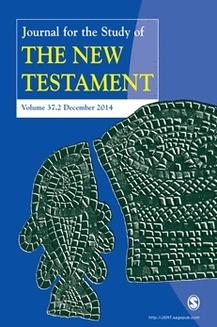| Alan Garrow Didache |
Didache and paul
What caused the Thessalonians' grief?
|
Paul taught the Thessalonians something which meant that, when some of their number died soon afterwards, they thought they were without eternal hope (1 Thess. 4.13-18). What could Paul possibly have said? In 'The Eschatological Tradition behind 1 Thessalonians: Didache 16' (download PDF of article) I try to answer that intriguing question.
If Paul did know and teach the 'scheme of the End' in the Didache's last chapter, then this puts (at least this part of) the Didache earlier than 1 Thessalonians. This, in turn, is signficant because 1 Thessalonians (written c. AD 50) is probably the oldest text in the New Testament. |
... the fact that the Didache contains at least one tradition known to Paul’s churches is an exciting discovery, and it opens the way for finding out how much more of the Didache is pre-Pauline. |
Why did Paul write Galatians?Galatians was written in response to a very curious crisis. A group of Christians, previously completely loyal to Paul, had, as a body and with 'astonishing' speed, been persuaded of 'another gospel'. How could this have been achieved? This paper, originally delivered to the Paul and Acts Seminars of the British New Testament Conference 2017, argues that the Didache (in its earliest form) lies at the heart of the story. 'The Didache: Key to the Acts-Galatians Conundrum'
|
